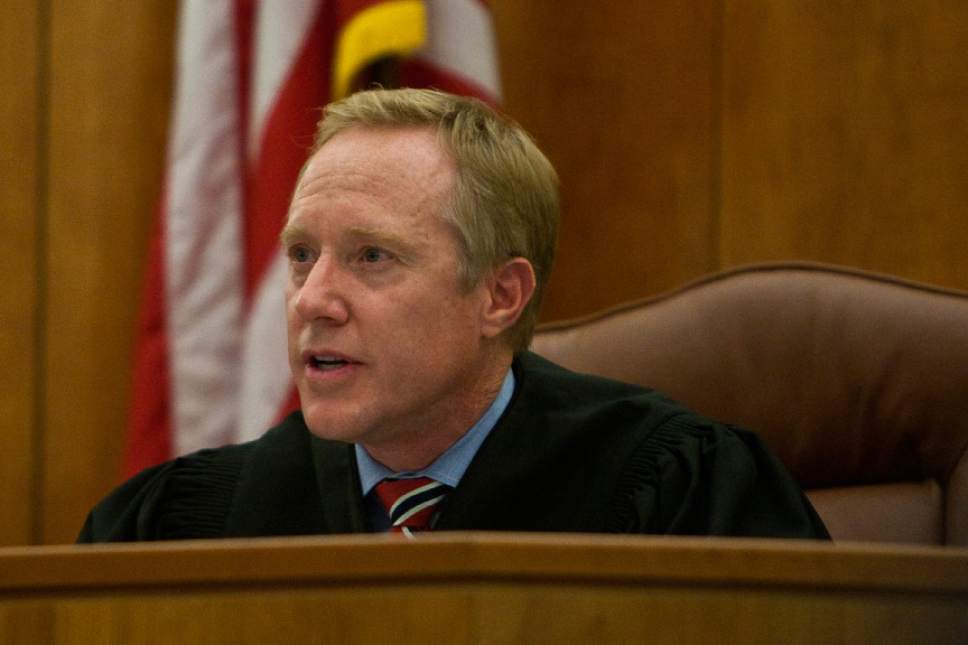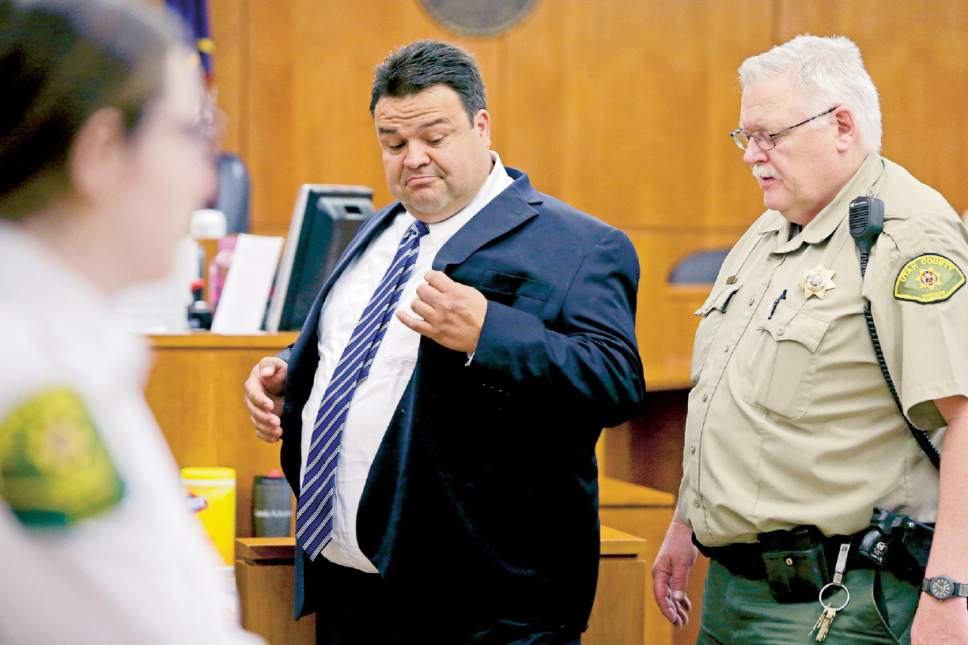This is an archived article that was published on sltrib.com in 2017, and information in the article may be outdated. It is provided only for personal research purposes and may not be reprinted.
The media and others are outraged about a recent criminal case; but not about the sentence meted out by Judge Thomas Low. Instead the pitchforks and torches focused on comments Judge Low made while sentencing a man to prison, possibly for the rest of his life.
The words that led to such ire did little more than recognize the dual nature of the human being before the court. To critics, Judge Low deserves removal for vocalizing the good in the defendant's life while sending the defendant to prison for the evil. These critics take the judge's statements out of context, ignore the court's role and lack a fundamental understanding of criminal justice.
At the almost two-hour sentencing, the judge heard extensive testimony from witnesses for the victim and the defendant. Judge Low spent a great deal of time praising the courage and strength of the victims. The judge, calling the victims "survivors," described one "as bright or brighter or as strong or stronger than any other victim of sex crimes that this court has ever seen."
After praising the victims, Judge Low acknowledged testimony for the defendant stating "the court has no doubt that Mr. Vallejo is an extraordinary, good man. But great men sometimes do bad things." He then imposed a sentence of up to life in prison and 10 sentences of one to 15 years. If results and actions have a voice, then the sentence Judge Low imposed spoke volumes.
In context, the judge's words can be viewed from many angles. Perhaps Judge Low intended to offer some small hope that the man's life was not completely without worth. Perhaps the judge meant them as a reminder of the trust betrayed or potential wasted. Perhaps the judge addressed those who still love and care for the man, assuring them the court heard their voice as well. We cannot truly know. While we speculate and criticize, a judge is in the unenviable position of restraint. The court system has long recognized the need for judges to stay neutral in public debate. Judges must be loyal to the law, not public opinion or their own seat on the bench. Maintaining such judicial independence is vital to every case, not just this one.
Many critics focused on the few words calling the defendant a "good" man. Sound bites and one-liners lend themselves to news stories and politics. Such statements rarely, and rarely should, weigh on the mind of a court. It is often helpful to see the whole picture, but in few situations is that more important than a court. To boil down the entirety of an investigation, multiple court hearings, a trial and a life sentence to one statement uttered by the judge is myopic at best.
We must remember that a judge has a duty to consider all evidence presented. Judge Low's comments about the worth of this man's life demonstrated an awareness of this man's contributions. Judge Low's sentence demonstrated an awareness that this man's contributions did not outweigh the harm of the man's actions. Some will argue that this man did not deserve any measure of respect. That he is not even human. To this, the courts and enlightened society can only respond that how we treat the least among us is more a reflection of us than of those least among us.
We all express sorrow for the victims of the defendant's tragic choices. Nevertheless, there is still value in recognizing the tragedy this man has brought upon himself and his family. Recognizing that a human being can be both good and bad does not demean the victims of a person's horrible choices. Pretending that only bad people do bad things does nothing to prevent sexual violence or any other crime. When we dehumanize anyone, regardless of their crime, we engage in the same logical flaws criminals use to justify their own horrible choices.
The intent of Judge Low's words was clear when the judge sent the defendant to prison. Reminding a man that his life had meaning before sending him to prison, likely until death takes him, does not make one a monster. To the contrary, it makes one, even if just a little bit, human.
This commentary is from the Board of Directors of the Utah Association of Criminal Defense Lawyers, and supported by: Samuel Alba, former Federal District Court magistrate; Rich Mauro, executive director of Salt Lake Legal Defenders; Tom Means, executive director of Utah County Legal Defenders; Richard Van Wagoner, Lawrence (Monte) Sleight, Wally Bugden, Tara Isaacson, Tawni Hanseen, Camille Neider, Annie Taliaferro, Robert Cummings, Phil Wormdahl, Cara Tangaro, Skye Lazaro, Kyler Ovard, Steven Burton, Jon Williams, Michael Langford, Abby Dizon-Maughan, Melissa Stirba and Greg Skordas.





